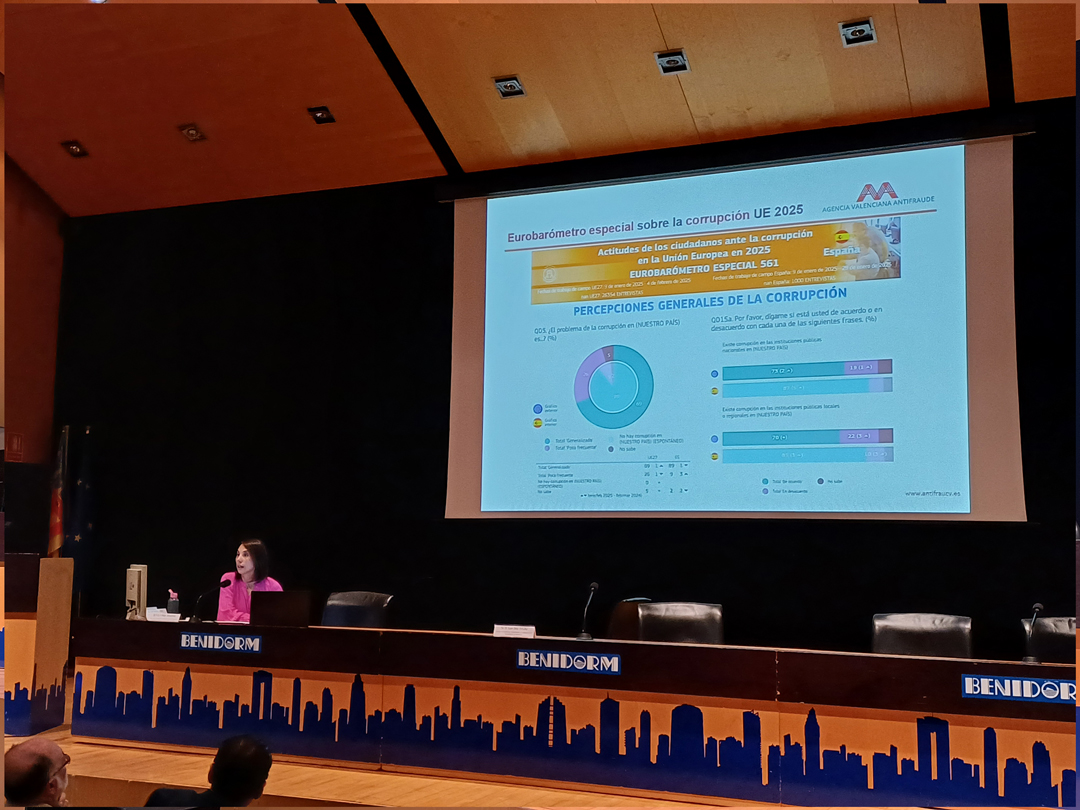Valencia, 16 October 2025.–The Faculty of Economics of the University of Valencia hosted a new training session of the Valencian Anti-Fraud Agency (AVAF), developed under the already consolidated #DocuforumAVAF format.
The activity was held on Thursday, October 16, 2025 at the Tarongers Campus and was aimed at first-year students of the Bachelor’s Degree in Economics. The session, which lasted 90 minutes, was attended by 40 enrolled students.
On behalf of the Agency, Mayte López, training technician of the AVAF, intervened. The main objective of the session was to make the students aware of the work carried out by the AVAF, with special attention to its functions, experiences and the exemplary value of corruption informants as a key pedagogical tool. The role of the Agency in the legal protection of whistleblowers was also addressed.
The session focused on raising awareness of the phenomenon of corruption and disseminating public integrity systems. In addition to the exhibition, the AVAF energized the activity through gamification techniques that allowed the students’ impressions to be collected. The students actively participated in the proposed dynamics and showed special interest in the administrative procedures and technological resources used in the Agency’s research.
The #DocuforumAVAF continues to consolidate itself as an effective educational tool to bring students closer to the real challenges of public integrity and the defence of the general interest.
If you are a university teacher and you want the DocuforumAVAF training activity to be taught in your classroom, you can contact the Training Area of the Valencian Anti-Fraud Agency by email: formacion@antifraucv.es







